Perceptions of the double-breasted jacket
In our previous article we covered what is perhaps the ‘standard’ choice for a suit or jacket (a single breast with a notch lapel). The next obvious style to consider is the double breast. Yet for such a recognised alternative, it occupies a relatively small, perhaps even non-existent part of the modern man’s wardrobe.
This is largely a result of fear or lack of understanding. The DB is often seen as old-fashioned, and therefore worn by older men; it is seen as serious and formal, particularly in a pinstripe; and many consider it unflattering.
Let’s set out what sits behind these perceptions.
What are the benefits of a DB jacket?
One thing that’s certain is that a double-breasted suit adds breadth to a man, as it takes the standard, single-breasted lapel and pulls it further across the body. It is a strong, diagonal streak.
The peaked lapels also create breadth because they point outwards. Even if the peak appears high on the lapel, the top of it will be relatively horizontal, slanting across the chest.
And the buttons, whether there are six, four or two, create horizontal lines as well – or indeed a box, if there are six or four.
You can change it all
A double-breasted jacket can therefore be good for a slim man with narrow shoulders, giving him much-needed breadth.
But it can still suit a bigger or wider man. For the effect can be greatly reduced, altered or simply personalised with the changing of the button positioning.
Imagine a standard double-breasted jacket – as pictured above. Now move the waist buttons (the two central ones) gradually down. As you do so, the lapel lenthens and becomes more vertical, running down the body. If you do the opposite, and move the buttons up, the lapel does the opposite, shortening and flattening.
Small changes to the button position can radically change the angle of the lapel and therefore the amount of breadth it gives to the wearer.
Now consider the jacket as second time. This time, move the two waist buttons slowly towards each other. This makes the lapel more vertical again (though also shortening it slightly), and doing the opposite makes it more horizontal.
One should never push this too far, but it quickly becomes apparent how important the placement of those buttons is. To the lapel angle, and to the size of the box created by the buttons.
Customers of bespoke or MTM tailoring can try this with their tailor. Ready-to-wear customers should compare jackets from different brands to see the difference.
Further Reading
Double-breasted styles compared
The Rules and How To Break Them. No 5.
Button options for a DB jacket
The number of buttons on a DB jacket, and where they fasten, also makes a big difference to the look. This is usually described using a numerical system, where 6×2, for example, means six buttons overall of which two rows can be buttoned (as in both images above).
This is the most traditional and common option. Then there is then the low-buttoning 6×1, the military-looking 6×3, the square 4×2, the 4×1 and the rare 2×1. Each has a different effect, both in terms of formality and style.
Let’s look at the effect of each in turn. The 6×2 arrangement is the most traditional, and perhaps lends itself to more traditional cloth and styling.
Above is a great example of a classic navy chalk-stripe, perfect for a more conservative business outfit. However, the number of buttons and the height of the buttoning can look bulky to some, and perhaps not rakish enough.
This is solved by the next option – the 6×1, where there are still six buttons but they fasten on the bottom row.
Cifonelli‘s royal-blue double-breasted jacket above is a nice example. By buttoning at the last row and cutting the cloth to open more across the chest, this characteristic Cifonelli style creates a more striking look and more room for the shirt and tie.
The effect is accentuated by having the jacket slightly shorter – normally only employed on jackets rather than suits.
Four buttons looks less bulky than six. So the next option is getting rid of the top two buttons entirely, leaving us with the 4×2 shown above (from Henry Poole).
This can be a good choice for men that want to try the style of a DB, but fear six buttons will be overkill. It gives a cleaner look to the chest, and you can, after all, merely add the missing two at a later stage.
Given you rarely find this style off the rack, it can also highly a bespoke suit (though of course, you could also remove the top two buttons on a 6×2, if that’s possible without leaving a mark on the cloth).
Just as with the 6-button configuration, there is then the choice to button to the bottom row of four – as shown by the example of a 4×1 by Edward Sexton in a cream flannel above.
(I should say at this point that with most jackets you cannot just decide to start buttoning to a different row. The jacket will usually be cut to button to a certain point, and if you change that, the shape through the waist will be ruined. There are versions of a DB, largely from Italy, that are soft enough and have enough control in the collar to switch where the buttons are fastened. But they are rare.)
With the 4×1, the top row of buttons is slightly further apart to avoid creating a square. Note how the buttoning point is lower compared to the 6×2 or 4×2 above, increasing the length of the lapel and so reducing some of the bulk that results from the overlap of the cloth.
Lastly, there is the 2×1, with simply two horizontal buttons, both appearing to fasten. This is the most unusual and is unlikely to be popular. But it can be a starting point, with more buttons (even buttonholes) added later.
Further Reading
Edward Sexton Grey Flannel Suit
Italian Double-Breasted Illustrations
Double-Breasted: Harmony v Balance
Final thoughts
On DBs generally, it is fair to say that most ready-to-wear double-breasted jackets will be less flattering than a single-breasted. This is because they are harder to cut to a standard fit, so are unlikely to fit as well.
That’s a good reason for having one made bespoke, and if you do there is no reason it shouldn’t be very flattering – whatever your shape. Indeed a RTW one might be as well, if you search long enough and find the right style.
When buying a double-breasted jacket (be it bespoke, MTM or RTW) always consider the position of the waist button and the extent of the overlap – as set out above.
Finally, a large man can wear double-breasted much more easily if he reduces its bulk in every other way, through lack of clutter, texture and excess cloth. In my opinion, large men shouldn’t be scared of a double-breasted suit, and slim men should positively embrace it.
Further Reading











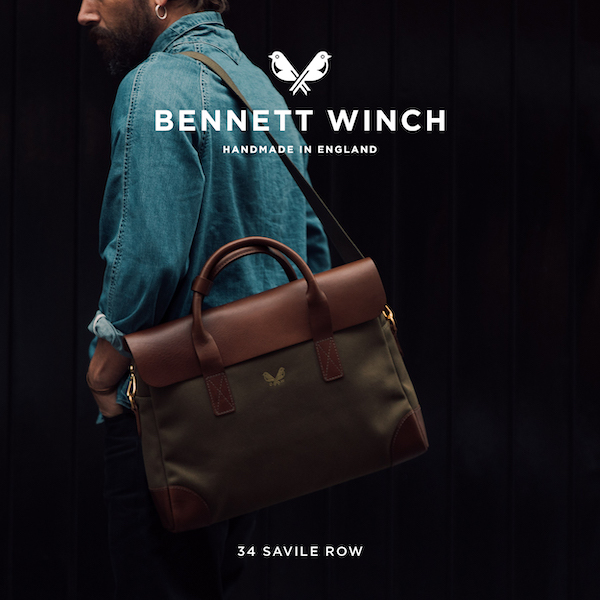







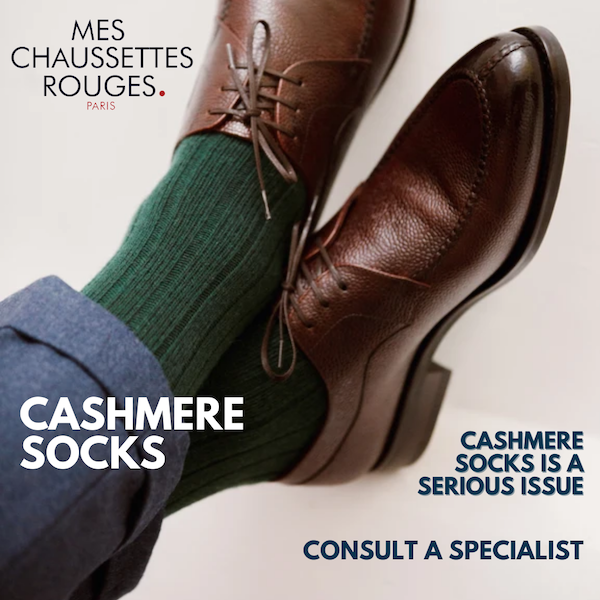










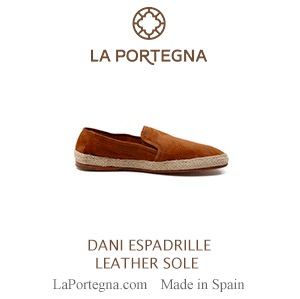
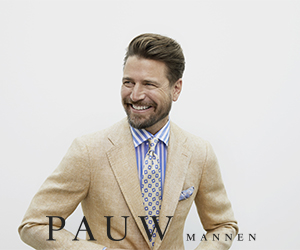

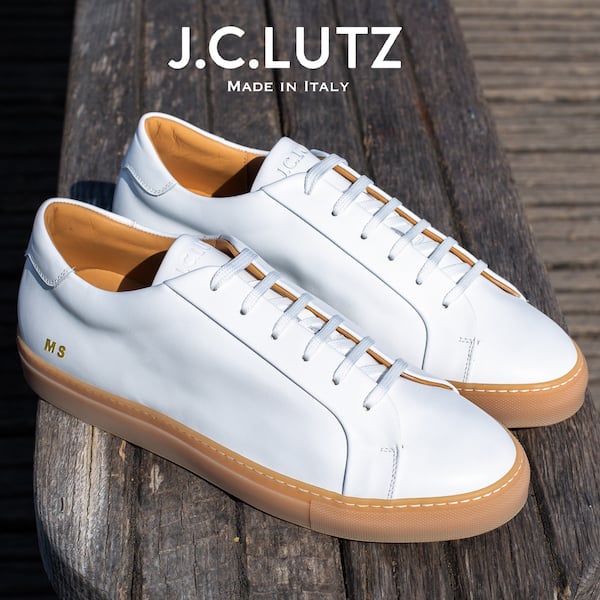

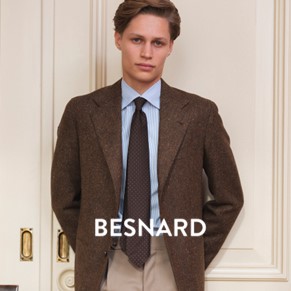
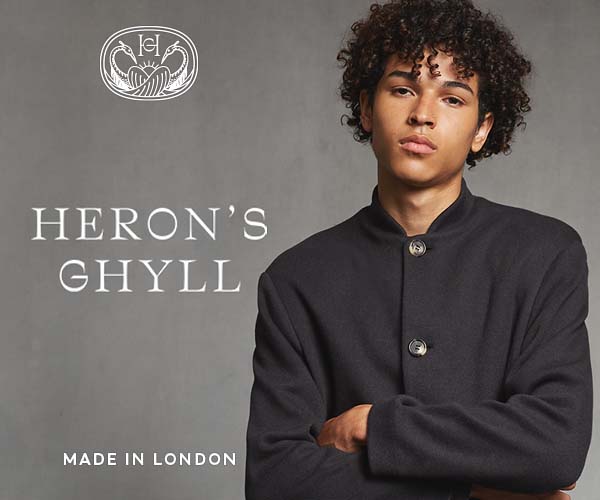

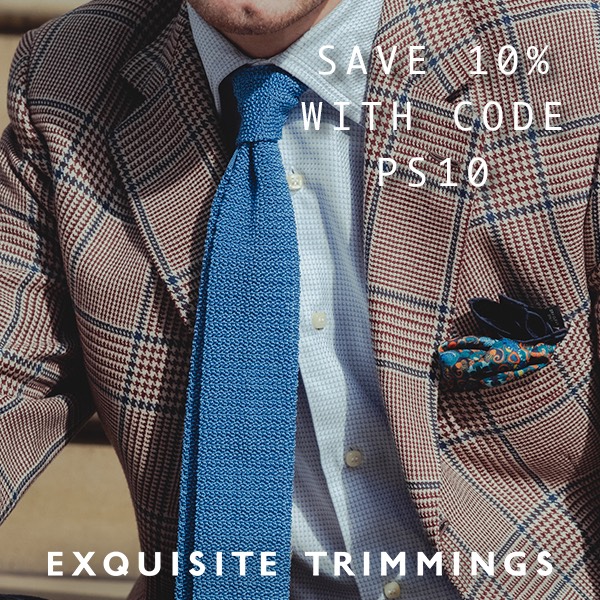
Thanks for the nice article. For the Cifonelli, I think you meant 6×1.
Very instructive, I’ll try double breasted when I’ll have the opportunity then.
Man, I always get one wrong! Will correct now.
Thanks for this, Simon–I love my A+S double-breasteds. But I wanted to write with an unrelated question about t-shirts for summer. You’ve written about both Sunspel and Orlebar Brown. I tried the OB classic t-shirt and found it skin-tight and completely unflattering–and I’m a slim guy! Perhaps I need to size up, but I suspect their cut may not be for me. Do Sunspel t-shirts have a little more drape to them? Are they any less form-fitting, but still slim overall? Thanks for any thoughts or advice!
Cheers Justin. Would you mind leaving this question on one of the T-shirt posts? I like to keep them all together as people regularly go back in and read the old ones
Of course!
And to folks considering DB suits: my A+S earns me lots of compliments and doesn’t look at all old-mannish. Highly recommended.
Very informative .
Just a small point . I think it might help if photographs to illustrate points were next to each other.
It just avoids too much scrolling backwards and forwards .
On a point specific to the topic , why do some men always favour double breasted .
Prince Charles is probably the greatest contemporary proponent of the double breasted jacket .
It’s not as if he needs to disguise his physique.
No, though he’s not the most muscular or broad of men. I’m sure he finds – like I do – that an A&S DB gives him chest and width that he doesn’t have physically
I always like to have at least one DB in my wardrobe but it’s been difficult (at least I think so) in the last few years to wear a DB as informality in business wear has increased and I have felt over-dressed at meetings where the younger attendees don’t even own a suit. I particularly like a 6×3 preferably in dark colours and a plain fabric (box-pattern buttoning) but I admit that that can look a bit too much like a uniform. What are your views on fabric, colour and pattern for DB’s?
I think you’re right, John, that the formality of a DB can make it hard to wear, particularly in anything smart and structured. A 6×3 would be particularly difficult, given it is so – literally – buttoned up.
I find I wear DBs more to events and formal occasions (again, speaking to increasing relative formality) and when I wear them more casually, it is in the most casual construction – like my hopsack from Elia Caliendo. And with that, I will frequently wear it open, hands in pockets perhaps. There is a certain skill in undermining the formality of such pieces with an ease of wear. But it’s not easy.
theres one reason to get DB and thats because its non office if you get it done the right way , try and get the lapels large and have a 2 button semi drape front, believe if you have a slim stomach this is the top. But use a great unusual material two , a two tone kid mohair.
Never go for thin or normal lapels on a db , must be large .
Thanks for this. Really helpful. I’ve currently got three single breasted suits and am thinking about going for a double breasted for my next commission. However, I am concerned a double breasted suit might be too smart for my work. My bespoke single breasted are already very smart compared to others. What would you advise?
Be very cautious – they can certainly be too formal in a situation like that
I don’t think there is such a thing as “too smart”. Dressing smartly says “I care about how I look”. Too formal is essentially, “I made the wrong choice”. You can both both too formal and unsmart; or even informal, and very smart.
Good distinction
Dear Simon,
indeed I was wandering to see your Caliendo-Blazer in the post, which seems for the buttons to make you equally slim and/or relaxed as the A&S in my view (judging, of course, from photos). Are the positions of buttons similar? // Two other questions: 1) Do you really wear the Elia Caliendo often open – and how does that work with the lapels? 2) And are there special cuts which make a closed DB easier while sitting? Your wore it open during the TV-bicycle thing, didn’t you? I do so and always have to button it up when getting up (which I find slightly more annoying than for a SB, therefore using my DB more for events involving a lot of standing. But I remember pics of A&S Tailors on your blog being seated with closed DBs…
– Yes, the buttons are similar, though the structure is very different of course
– Yes I do wear it open sometimes. Usually with one hand in a trouser pocket, or in the jacket pocket
– I usually wear the DB closed when sitting, but always. The only thing you can do to help is really cut it a little looser!
Simon,
A fascinating piece, and series as a whole. What a delight to read articles on the topic of such depth, quality and knowledge. It’s really got me thinking about how a double breasted jacket can be made to suit different body types, or more contemporary/traditional, depending on taste. I cannot wait til the day I make my first bespoke commission, and the degree to which this site will be instrumental in so many aspects of style and fit.
Thanks, I’m so pleased you find them so useful (and inspiring)
very interesting Simon, I love DBs. Interesting point I hadn’t considered about shifting the buttons even a little affecting the angle of the lapel. I am considering small adjustment of buttons to allow a rather snug jacket to be a bit less snug (hopefully). A couple of questions: what is the weight of your A&S grey flannel suit & how do you find that fabric works in a suit (being I presume ‘softer’ than many alternatives), and one last question – what is that impressive vintage looking suit that you have used in the photo to introduce the article? Thanks.
– 11oz, and i find it works well, though I do love flannel
– it’s a RRL ready-made suit
Dear Simon!
Thank you for this article.
Most on my suits are DB and I had the impression that my tailor was plesed to make a DB since most customers ask for single breasted.
From the pix you posted my favorite is the Panico 6×2
How often do you still wear the Henry Poole suit?
Not that often. It’s lovely but the combination of the DB and non-corporate pattern makes it quite unusual and difficult to wear day to day
Is interesting that in Italy the double breasted is a very frequent choice above all between the bespoke and high end RTW customers.
Italian tailors cut numerous double breasteds; is probable that this type of coat is popular because is difficult to make and to dress.
For this is considered “distinguished”.
Is not a new thing: in Italy the double breasted never disappeared,not even in late 50s and 60s when this garnment meet the minimum consent in some countries (as United States).
In RTW field, “Al Bazaar” of Lino Lelluzzi in Milan is the temple of double breasted.
P.S. Simon write:
“There are versions of a DB, largely from Italy, that are soft enough and have enough control in the collar to switch where the buttons are fastened”.
This is true,this model is called “trasformabile” (“Convertible”) and the finest tailors cut double breasted in this way.
For Exemple the Caraceni,Musella Denbech,Rubinacci,Crimi,and others.
Hi Carmelo,
Love this little gem of a comment of yrs! You are absolutely right, as usual!
Brooks Brothers also used to make some very fine convertible DB suits back up through the 1950s….
I recently commissioned a duplicate of one of their convertible models from the teens to early 20s and should be taking delivery very soon. It is a 6-3-Roll-2, sack with soft shoulders and high arm-holes, Hopefully it meets my expectations as they pattern was made entirely from scratch and I suppose qualifies as a bespoke garment in that respect….My tailor seemed quite keen on the suit.
I codrially congratulate on your blog. It is the only English-language one which I regularly read. Best regards from Poland.
Thanks Norbert, lovely to hear
http://www.permanentstyle.com/wp-content/uploads/2015/06/Anderson-and-Sheppard-DB-flannel-suit-Symposium-465×700.jpg You’ve used this pic in plenty of posts but this is kind of the gold standard/textbook definition of double breasted suit. Just gorgeous and I’d think you’d almost have to start from here. Anyhow, I used to own a double breasted suit, just too warm and too much material to wear in the SF/Bay Area, and also with my height/build it makes me look shorter and wider/stockier. Gorgeous cut though.
For me your Edward Sexton grey flannel DB is just perfect.
Hi Simon,
I commissioned a Calvo de Mora db Prince of Wales I still do not have it, but my impressions in the fittings were so good!
I do not know if I will have many occasions to wear it, working in a private Bank, but I believe it is a long term investment!
Best regards from Spain
Hello Simon,
Greetings from Seoul.
I was always curious about why Prince Charles when wearing his 6×2 DB jacket, always closes his buttom button as well. Could you please shed some light as to why?
Cheers,
Unfortunately, it’s just a lack of knowledge. Most of his style is also down to his staff and Diana when she was alive. Not to him personally
I’ve always thought that buttoning up in the way he does was a bit odd, but he was doing it pre Diana, and I guess that as the future monarch he can do wants to. The previous PoW also had a style all of his own………
True, though it was really Diana that got him into DBs at A&S. And from the Palace staff I’ve spoken to, most things are laid out for him in any case.
And then more recently persuaded to move to T&A.
Indeed
Another wonderful article. Thank you Simon.
The royal-blue of the Cifonelli jacket looks as unsubtle as it sounds. Would you wear it?
I have a royal blue flannel suit from A&S, so yes… though it’s perhaps not as bright
Dear Simon,
reading this post and having been inspired by your beautiful DB navy hopsack from Caliendo, I would like to ask something about the (formal) DB-style and (softer, relaxed) Napolitanian tailoring.
Backround: I am having a suit made by Elia Caliendo in a classic dark-blue (near navy) very wrinkle resistant middle-weight worsted with 10% cashmere, as a somewhat classic „day-time-conference/buisiness-as-well-as-evening“ all rounder. With the exception of a autunm-winter-travel suit in a heavy brown worsted Holland&Sherry, it will be the first bespoke item in an otherwise large, but RTW wardrope. Very happy with going to Naples, I am still undecided between the (3-2 roll) SB or a DB; and your advice would be highly appreciated, also since in touches upon various aspets already discussed at PS.
First, I went to Elia Caliendo precisely because I was most impressed with the straight lapels on your blue hopsack jacket and wanted something similar, we did however end up with the idea of a suit. And than I thought about your valuable post „how many tailors a man should have“ with regard to dramatic ones, business ones and more casual ones, with Naples being in the last of the three categories. Your much commented linen-suit by Dege&Skinner, however, showed how much one can play with different styles, for I would choose (I think) a Napolitanian Tailor for linen as well as, for example, an english one for a Dinner Jacket. Further, in this post you start with DB being more serious and formal, but show magnificent patch-pockets which, im my view, soften the formality in your pale-grey Cifonelli; but it is probably not by chance that this is also a lighter colour and has the herringbone texture in it. So – what would be your recommendation for my darkblue-Caliendo suit, should I stick to the famous 3-2 SB with soft shoulders and leave the DB maybe for latter, more structured and dramatic version? Or what are your general thoughts on DB in Napolitanian Tailoring – still so distinct from the more structured world that I could stick to my initial admiring of your DB travel-jacket? And if so, do I leave the rest more formal (in terms of pockets, dark blue buttons etc.) or continue to „soften“ it a just a little with patch-pockets and dark brown buttons all in oder to play around in the end from, let’s say, tie-less cocktail, shirt and tie for work and bow tie for the theater?
Thank you very much for your help and advice,
Christoph
Hi Christophe,
I like the Neapolitan DB style a lot, and I would go with that if you like style – it will still apply well to the situations it sounds like you intend it for.
The only reason I might suggest an SB is that this will be generally more useful and versatile. Less interesting, but very useful. So I think that is the main decision point.
And no, nothing wrong with having patch pockets and dark brown buttons
Simon
Is it ok to wear bow ties with a DB suit ?
Absolutely! They often look best with a DB as they fit nicely into the smaller gap between the lapels than on an SB
I am wondering where exactly is the best place to buy a DB suit. I live in southern america so finding a lot of stores that sale them is working. Do you places that you would recommend?
Not in Southern America I’m afraid sorry
Simon – is it appropriate to wear a waistcoat under double breasted suit and if so what kind of style would go well?
Yes it’s fine to do so, though it is in some ways a bit of a waste, as it will not be seen if the jacket is fastened (which a DB nearly always would be)
Any style would be appropriate, DB or SB
I absolutely love the Cifonelli 6×1 royal-blue double-breasted jacket yet for what occasions I can wear it ?
It seems to rakish for the office wear (american investment bank in the city)?
Also when the royal blue seems very loud, when it would be appropriate to wear this color?
I completely agree, even in a navy it would probably be too dramatic for most professional jobs. But even toned down to a 6×2 in navy, it would be a beautiful piece.
A foolish question, perhaps, but does one unbutton a double breasted suit when sitting down? It’s customary and easy enough with a single breasted, but if you’re up and down, undoing multiple buttons seems cumbersome.
Thanks!
Not at all. Generally the rule is no, you don’t unbutton it
Hey Simon,
My friend is thinking about getting a MTM suit and he wants to go with a double breasted three piece. He wants double pleats on the pants and he wants the vest to be double breasted and have a collar as well. Is that overkill? I understand those things can be done individually but all at once I feel would be too much. Am I wrong?
Best regards,
omoh
You’re not, it definitely sounds too much. Perhaps have a single breasted jacket, then youve got a very wearable suit without the waistcoat, and a much more showy one with it
Simon,
Thank you for taking the time to elucidate us on the double breasted jacket, an almost extinct species here in NYC. Following your lead, or finding similar utility, I’ve decided upon a double breasted suit for my wedding, and I seek your further wisdom. Next week I’m traveling to London and would like to commission a mtm double breasted suit, in a sober navy or charcoal. I’ve been a soft shoulder acolyte since beginning my suit wearing life (primarily Eidos), but for my wedding I’d like something in the English style. Not too broad shouldered and nipped at the waist, but something that makes my narrow shoulders look a little more chiseled and gives my chest a bit of shape.
If you would be so kind, could you make a recommendation for London MTM in a more English style than Italian. Perhaps not a house on Savile Row as budget is a concern. I’m looking for something around $2,000. Additionally, a house that might make a stop in NYC is a plus. Once, again, thank you for sharing your knowledge and wit.
Sincerely,
Patrick
Hi Patrick. It sounds like Whitcomb & Shaftesbury might suit what you’re looking for? Bespoke, but just about in budget?
Thank you, Simon!
With regards to the earlier discussion on the subject of Prince Charles’s fastening of both buttons on a 6×2, I wouldn’t necessarily say that it is due to the lack of knowledge, perhaps just his personal preference. I find that a fully fastened DB (especially structured) looks rather neat because of a more ‘military’ look and therefore works better than a fully fastened SB. All is of course a matter of personal preference.
Absolutely – key always is understanding the effect of each option, then making your choice on that basis.
Firstly, great website!
Secondly, wanted to get your opinion. Just got a MTM DB Suit (6×2)….everything fits great but the stomach area (where you button it) can use a drop more room. So my question is, since I’d rather not have to alter it for such a small amount, would moving over the button work? Would it mess up the proportions of the entire suit? Would I have to move over the other 2 buttons on that side (right side) as well? Thanks in advance!
Probably not I’m afraid. You would have to move the other buttons as well, and you’d mess up the balance of the jacket back to front – adding extra room just at the front where the tailor would use the side seams to add a little to front and back
Is solid navy a good choice for someone’s first double breasted suit? I currently have a navy, charcoal, black, mid grey, grey glen plaid and navy pinstrip suit.
Yes, good place to start
How do you sit down in a double breasted? Assume you have to unbutton the jacket, which means it splays open and with all that extra material doesnt it cause an inconvenience?
Generally the guideline is that you don’t undo a double breasted when you sit down…
However, it’s not the end of the world if you do. The jacket might sit open a little but it doesn’t really splay out
Don’t know if it’s an obvious question but do you typically unbutton your DB when sitting down? Would that create a lot of extra fabric visually?
What’s your view of not buttoning DB in general?
Not at all, an interesting one.
Fortunately, covered at length in this post.
You may also like the other posts in that Style Rules series.
Hi Simon,
I haven’t been able to achieve a satisfactory fit for my sunken chest (fairly large on the top and sides but hollow in the center) even through bespoke (WWC). That being said, I haven’t tried a DB yet. If I go down the MTM or bespoke route for a double breasted, would it be easier to achieve a good fit?
I doubt it Bernie. I think you’d have the same issues as with a single breasted
Thanks for your feedback! Is there any special aspect of fit that I need of be aware of for a DB or do the same principles for a SB apply?
The same principles. But consider more closely the design of the lapels – their shape and the position of the buttons will make a big difference to the overall look of the jacket.
Thanks!
Seems to me that the Cifonelli 6×1 style would work very well for someone who is on the shorter side and has an athletic body. The V-shape of the buttons has a lengthening effect, and the lower buttoning point and and more open look would also be flattering. Would you agree with this assessment?
Perhaps too rakish to wear at the office, but then again, the same is probably true in most office environments for any DB, so no loss there. However, I could easily see wearing that type of jacket for a nice dinner out. I would probably tone down the rakishness by going for a dark navy rather than royal blue, and for dark brown buttons rather than gold colored buttons (which are great for military dress but otherwise a bit too much, in my view).
I think that would be really nice style-wise. I would think that wide, deep V would exaggerate an athletic silhouette though, perhaps. To minimise it I’d go for a single breasted, slightly lower gorge and slightly lower buttoning point (as you said)
Hi,
would you recommend wearing a vest with a DB as they did in the 30s and 40s (see China Town)?
Greetings from Gay Paree
J.P.
Hi
Interesting question. Not usually, no, as it will simply not be seen most of the time, and I think would risk looking rather affected.
Hi Simon – thank you for the informative article. Could you elaborate on the best styles for different body types i.e. button positioning / number, lapel width / positioning etc. I’m currently commissioning a number of double breasted suits and like the look of 4 on 1. I’m 5ft 9, slim / athletic and wanted to know what would be best suited in term of the above and if a 4 on 1 is a good option. Also is 4 on 1 relatively a timeless option (I like to keep it classic).
Cheers.
If you want to keep it classic, then no this is not a good option. Go for 6×2 (six buttons, the bottom four appear to fasten). 4×1 is very extreme, and unlikely to look good in a few years.
Also, have you read the piece in this series on flattering different body shapes?
Hey man, I am considering getting a DB suit, but my body is tricky.
I am 5 foot 7, 170-180lbs aroungd the year and I’m quite muscular, I need the DB to work with my height while not making me look fat, I’m stuck between 6×2 and 4×1:
1. normally 4×1 is better for short guy, but because of the slight lower button position, it will kind of elongate the waist, the only benefit I see it is less button less detail;
2. 6×2 has a higher button stance , if combine with shorter jacket, can look very nice, while with 4×1, lower stance plus short jacket kind of look comic like, but is is 2 more button,
Theoretically speaking 4×1 is more for me, but when I look at myself in the mirror, 6×2 actually look better, I want to know how you feel about it?
Personally George, I would avoid more unusual button stances, like 4×1. It’s more risky, and has a greater chance of making you look shorter depending on the jacket length and button position. I would stick with the classic 6×2, and then look during the fitting as to what you think the best position of the various buttons is
Yeah I think it is better this way, and I agree with u that one button sb is better, I made this 2 button suit mtm and I asked the tailor to keep the button at my natural waistline no lower, and eliminate the second button, the result is fantastic.
1 button sb and 62 db looks like the definity answer to mtm suits.
However, regarding the SB jacket, I have seen some one button, but they button below the waistline, making my torso even longer, I like the neutral button stance on 2 button jacket, I though about doing a 2 button jacket but just remove the second button, BUT!!! the proportion of the jacket design start seems unbalance, so I think yeah, even though I’m 5 foot 7 only, 2 button will probably better for me.
Hello Simon, Wondering what your take is on patch pockets on a DB suit or jacket (in something like navy fresco or hopsack) ? Thanks !
On a jacket it’s great, nothing wrong with it at all. A nice style touch if you like the shape of the pockets, and it makes it look more casual.
See my navy hopsack from Caliendo for example.
On a suit it is a little more risky, and can look out of place. Personally I’d stick with normal pockets. It’s easier to do patch pockets on single-breasted suits.
Thanks for the great advice ! Stay well.
Hi Simon
Thank you for a great guide. In terms of what you have covered, I especially was wondering how you consider bringing in fabrics and colors, which may have an ‘old fashioned’ look and feel to it? So that you won’t fall into the trap which you mention in the beginning: “The DB is often seen as old-fashioned, and therefore worn by older men”.
I more casual fabrics, like cotton and lightweight tweeds, can help there. And more casual colours – fewer navys and greys
Hello Simon,
Can you please explain why do we sometime see double breasted jacket lapel break in the middle? I have added an image link as example in the website link box.
Thanks, nice idea for showing me the link, though you can include it in the text here as well if you want others to see. In that case, the jacket is just way, way too small. As in, more than two sizes. Unfortunately it’s a mistake muscular men often make. This is not a lycra T-shirt: you’re aiming for clean, elegant lines
Hi Simon,
Could you please share your experience with the length of double breasted suit jackets in both 6×1 and 6×2 arrangements? It appears that the 6×2 is generally somewhat shorter whereas the length of 6×1 is kept longer. Is that true?
I don’t think so, no. I’d have them the same length
why is there a thought out there that small men shouldn’t wear double breasted? i think when fitted well they look good on any size.also I’ve seen rake extraordinaire Edward VIII wearing them constantly and he was 5ft 4 and wore 4/2 and 6/2. I personally thought he looked better in the latter with long looking lenth to the bottom of the jacket
Don’t take menswear rules so absolutely!
These things are never absolutes. They just make one salient point that should be combined with everything else that goes into deciding what clothes to wear.
If your absolute priority is to appear taller, than a DB might not help. It tends to add breadth rather than height. But that doesn’t mean you can’t wear them.
See our series here – the rules and how to break them.
And in particular, this one on DBs for larger men. It’s the same principle at work.
Hi Simon
Would the style of the Cifonelli jacket lend itself to a full suit, or is this best suited for a blazer?
Sincerely
Ashish
The style overall could work for either.
Hi simon given the current context and how everyone is dressing more casually, how can one wear a dB sportscoat and dress down sufficiently to not stand out too much? I don’t think I have ever seen you wear a navy dB sportscoat casually (jeans etc) and wondering if there can be an article on that
I think even if you wore a jacket like that with jeans (which I probably wouldn’t) it would look pretty smart. So the answer is, there aren’t that many circumstances, certainly not right now. But there will be in the future – there will be no lack of reasons or will to dress up. And jackets like this, with flannels and perhaps a button-down shirt, might be the formality level for a business meeting etc
Hi Simon, very helpful and informative discussion here. Noticed a lot of the questions (understandably so) is focused on the suit jacket, but what trouser trim/fit would you recommend for a DB suit? Would a slim fit work well given the top is wider/gives more breadth?
Good question. Generally a slim trouser can work, yes, because the jacket is still going to fit fairly close to the body. I’d say it would be more of an issue if the jacket, SB or DB, had bigger shoulders, a bigger chest etc.
I wouldn’t go very skinny with the trousers, but then I wouldn’t do that with any trousers anyway.
I am a bigger guy (chest 54r, waist 44), and just ordered my first 6×2 DB jacket via MTM. I have always heard that big guys can pull off the DB, as long as the fit is “right”. Besides the obvious, what specific characteristics of the fit should I look at when my jacket first arrives? Or, putting it another way, what fit characteristics do I want to avoid with this style?
My MTM allows for a significant amount of alterations (to make the fit “perfect”) once it arrives and I finally try it on…
Thanks
Good question William – it’s something we talk about in this article. Might be worth a look at that, and then feel free to ask any follow-up questions
Hi Simon, which tailors would be on your shorelist for a 4×1 DB?
To be honest it’s not a style I’d wear, so I’ve never thought about it much.
Thanks Simon. I appreciate it might not be for you personally but of the tailors you have known which do you think might do a good job with a 4×1? Just as a thought experiment.
I don’t really think I can say H, sorry, as I haven’t looked at the finer details of how different tailors would cut it.
Although to a certain extent, it’s only a minor design point, and so really you should be thinking about how structured or not, English or not etc you want the suit in general, rather than focusing on the button configuration
Thanks again Simon, your comments are well received.
I’ve no doubt there are many tailors out there capable of producing a well made DB suit but to some degree it is about finding a tailor open to, and with some experience of, a relatively unusual style.
Tangentially, why not on the style front? You have experimented with quite a few things over the years.
I certainly have, H, but I find that over time I tend to dislike those experiments and wish I had chosen something simpler. They’re exciting to commission, but that tires a little over time – and you want to be able to wear other interesting things with them, without it seeming too much.
For example, my Henry Poole suit was originally going to be a two-button DB. Then four. Then it eventually became a regular 6×2
HELP…I’m a bigger guy, and just received my first MTM double breasted jacket, and I love it! But I have noticed the “flowing”, “skirt” that occurs at the bottom of my jacket (probably as a result of having to fit over my belly/waist)…the fact is I can have the jacket taken in a bit at the natural waist (there is room), but can I also have the bottom of the jacket taken in a bit as well? I have attached a pic to illustrate the flowing “ripples” that naturally occur.
Yes William, to a small extent you can have that taken in. But only a small bit, without restricting the movement there.
Also, the material looks very lightweight and perhaps not fully canvassed? Both those things will accentuate the problem as the jacket will have less body
Ahhh, yes…it is half-canvassed…thank you for your considered advice!
No problem William, pleased I could help a little
So Simone, due to the half-canvas, would William’s adjustments affect it much if the material will end up rippling anyway?
It’s hard to say remotely I’m afraid
What kind of pockets would you use on a db suit jacket? Would it make a difference if you also would want to be able to use it as an “orphaned” odd jacket?
You could have patch or flap pockets, but the things that will make by far the bigger difference to being an odd jacket are the material and the cut. I’d go with whichever pockets you like the style of
Do DB jackets always close with the left body panel over the right, by convention? I assume they could physically be done up either way. Thanks.
Yes they do. The opposite is used for women’s jackets (and coats)